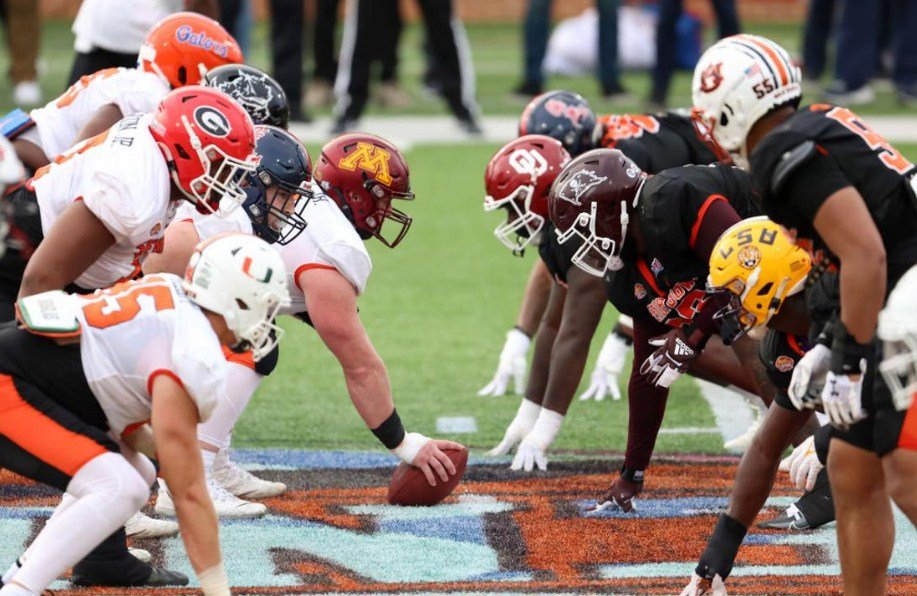College football athletes in the US are no longer restricted by the NCAA rules that prevented them from earning money from their name, image and likeness (NIL). Thanks to new state laws and a Supreme Court ruling, they can now sign endorsement deals, sponsorships, and other lucrative contracts that could change the landscape of college sports.
The NIL Revolution
The NIL revolution began in July 2021, when Florida and Alabama became the first states to allow college athletes to profit from their NIL rights, overriding the NCAA’s ban on such activities. Since then, more than 20 states have passed similar laws, creating a patchwork of regulations that vary from state to state. Some states, like California and Texas, have also set up funds to distribute NIL revenue among athletes.
The NCAA, which had long argued that limiting athlete pay was necessary to preserve the amateurism and integrity of college sports, was forced to adopt a temporary policy that allows athletes to pursue NIL opportunities without violating its rules. However, the NCAA still retains some oversight and authority over NIL activities, such as prohibiting athletes from endorsing products or services that conflict with NCAA values or regulations.
The Supreme Court also weighed in on the issue in June 2021, when it ruled unanimously against the NCAA in an antitrust case that challenged its restrictions on education-related benefits for athletes. The case did not directly address NIL rights, but it opened the door for further legal challenges and signaled that the NCAA’s power over college sports was not absolute. The court also suggested that legislation may be a better solution than litigation for resolving the remaining issues.
The Million-Dollar Hustle
The new NIL rules have created a frenzy of activity among college athletes, who are eager to cash in on their fame and popularity. Some of the top stars in college football have already signed deals worth hundreds of thousands or even millions of dollars with various brands, companies, and platforms. For example:
- Bryce Young, the quarterback of Alabama, reportedly has NIL deals worth over $1 million, including a contract with Cash App, a mobile payment service.
- Spencer Rattler, the quarterback of Oklahoma, has partnered with Raising Cane’s, a chicken restaurant chain, and has his own logo and merchandise line.
- D.J. Uiagalelei, the quarterback of Clemson, has inked deals with Dr Pepper, Bojangles, and VaynerSports, an agency founded by entrepreneur Gary Vaynerchuk.
- Quinn Ewers, the quarterback of Ohio State, skipped his senior year of high school to enroll early at college and take advantage of the NIL opportunities. He has signed a $1.4 million deal with GT Sports Marketing, a memorabilia company.
These are just some of the examples of how college football athletes are making money from their NIL rights. According to Opendorse, a platform that connects athletes with brands and helps them manage their NIL deals, more than 10,000 college athletes have signed up for its services since July 2021. The platform estimates that the total value of NIL deals in college sports is over $30 million so far.
The Impact and Challenges
The NIL era has brought many benefits and opportunities for college athletes, who can now monetize their talents and skills without jeopardizing their eligibility or scholarships. Many athletes have also used their NIL platforms to support social causes, raise awareness about mental health issues, or promote their own businesses and projects.
However, the NIL era also poses some challenges and risks for college sports. Some of the potential problems include:
- The lack of uniformity and clarity in the state laws and NCAA policies regarding NIL rights, which could create confusion and inconsistency among athletes, schools, and regulators.
- The possibility of unfair competition and imbalance among schools and conferences, as some may have more resources and advantages than others in attracting and retaining top talent with lucrative NIL offers.
- The potential for exploitation and abuse by unscrupulous agents, advisers, or companies who may take advantage of athletes’ lack of experience or knowledge in negotiating or managing their NIL deals.
- The impact on academic performance, team cohesion, and personal well-being of athletes who may face increased pressure, distraction, or stress from their NIL obligations or expectations.
To address these issues, some experts and stakeholders have called for a federal legislation that would create a national framework and standards for NIL rights in college sports. Such a legislation would also need to consider the rights and interests of other parties involved in college sports, such as coaches, administrators, fans, media partners, and sponsors.

